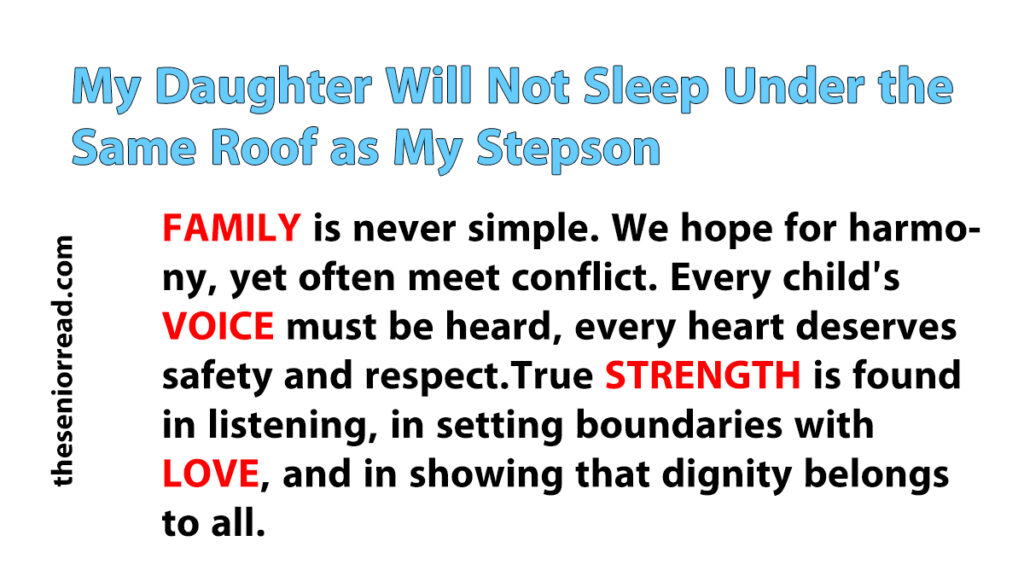When two households unite, it is rarely as seamless as one hopes. You may long for harmony and mutual respect, but reality often unfolds with its own challenges. Some blended families discover a rhythm; others encounter strain. My story belongs to the latter.

I share a home with my husband, our daughter, and my stepson. After we moved in together, I noticed my daughter retreating into silence. She assured me she was fine, yet something in her demeanor told me otherwise.
One evening, just before bed, I overheard my stepson in her room. His words chilled me: “I’ll take whatever I want, like always. You’re not going anywhere, and you won’t get it back.”
I stood frozen, unable to believe what I had heard. Later, I learned he had been mocking and belittling her for months.
My first instinct was to demand he leave immediately. But my husband stopped me. “You can’t just do that,” he said. I stared at him, incredulous. “If you won’t protect our daughter, I will. I’ll leave, and she comes with me.”
That night, my husband finally confronted his son. My daughter’s relief was visible, yet I remain unsettled. I wonder if this confrontation will truly end the behavior. Has anyone faced a stepsibling who persistently undermines their child? How did you bring it to a halt?
Thank you, Catrice, for sharing your story. These situations are profoundly difficult, and no single solution exists. Still, here are four guiding steps that may help you find clarity.
First, what he did — taking things and making threats — is unacceptable. Yet he is still a child navigating the complexities of a blended family. Establish firm boundaries and consequences, but also explain why his actions cause harm.
This balance fosters accountability and empathy, helping him grasp the impact of his behavior rather than simply fearing punishment.
Second, your daughter may have remained silent because she did not feel safe to speak. Reflect on moments when she may have tried to reach out. Show her that her voice matters. Ask gentle questions, listen without judgment, and affirm her feelings.
Third, you acted rightly by stepping in. Let her know she is safe and that you are always present. Create spaces for her to open up — perhaps through nightly check-ins or relaxed conversations. Emotional security is as vital as physical safety.
Finally, protecting your child can weigh heavily. Build a support system — friends, family, or professionals — to help you process your emotions. When you care for yourself, you remain steady and better able to guide your family.
Another reader once shared her painful choice: she took the dream trip she and her husband had saved for, just days after her 15-year-old stepson passed away. Many would have stayed home to grieve, but she felt it was time to honor her own needs, even amid judgment and sorrow.

